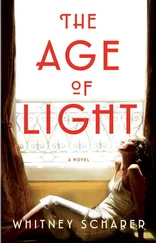“How about your weapon? How many rounds in your magazine?”
“Thirty.”
“So why don’t we take, what, forty percent of that away? You want to go outside the wire with eighteen rounds in your magazine instead?”
Beale muttered something.
“What?”
“I said,” Beale spat, “that I’d be a hell of a lot more worried about some missing shackles if I thought they’d keep me alive. Or if we ever got to go to the firing range instead of sitting around here practicing how we’re going to load a Humvee onto a train car, which isn’t even going to happen for another month.”
“You want to be in the infantry, Beale?”
“Sorry?”
“I said, ‘Do … you … want … to … be … in … the … infantry?’” She could see Beale’s mother, sitting there at her kitchen table, disliking the woman intensely for having saddled her with such an idiot. “Or maybe it’s me. Maybe you just have some kind of problem taking orders from a woman. Isn’t that what you really mean?”
It wasn’t like she hadn’t worried this might happen. Hell, if she’d had a mother like Beale’s — which she’d once had, in a way — she might’ve thought that a woman couldn’t run a platoon. But what she hadn’t expected was how raw and explosive her own direct reference to her sex would feel, the way it would suck all the air out of the hangar. The way she could hear her entire platoon listening.
“Because if you were in the infantry,” she said, “if you were with Captain Masterson, who just now walked out of here, I can promise you that he would feel exactly the same way that I do about some lost gear.”
“I don’t think you understand.”
“I think I do.” Here she was on firmer ground. “This is my platoon. I am not embarrassed to be organized. I am not embarrassed to do things right. That’s why we’re here. And if you don’t think that this job is important enough to take seriously, then why don’t you ask Captain Masterson? Because what he’s going to tell you is that the Army is not about acting cool. It’s about getting the job done. It’s about being precise. It’s about—”
Halfway through, Fowler felt her firmer ground dissolve. She was repeating herself. Beale had dropped into a squat, his head tucked, gazing off to the side, his raspberry lips mashed against his sleeve. “Captain Masterson took the gear,” he said.
“What are you talking about? I just—” She glanced toward the doorway of the hangar. “He was just here. He was complimenting me … us.”
Then she remembered the “baseball” bags. Their heaviness. Their metallic clanks.
“Stand up!” Fowler shouted. “Stand up and look at me.”
Beale did stand. He had to, which in her mind was supposed to be one of the benefits of the Army. But this time it didn’t feel that way.
“Why didn’t you report it to me?” she asked.
“What would you have done if I did?”
Out of the corner of her eye, Fowler saw McWilliams and a couple of other soldiers laugh at this. “Report it myself,” she said.
“Oh, that’s great, ma’am. That’d really work out.”
“Why not? He’s not immune to the rules. If a captain’s doing something wrong, it’s no different than anybody else.” The moment that she said these things, she realized that she sounded exactly like his mother. Talking about how unfair the world had been to her poor Carl. Taking refuge in how things were supposed to be. “If he’s wrong, he’s wrong. That’s the end of it,” she added, as if to convince herself more than anybody else.
“Yeah, well, then I’m wrong, aren’t I, ma’am?”
“So?”
“So you won’t defend me. But he might.”
It wasn’t what Beale said that set her off. Beale could have accused her of a lot of things, plenty of shortcomings — poor organization, bad people skills. Impatience. Quickness to anger. Lack of self-confidence. It was how she sounded when she was responding to him. Her shrillness, her brittleness. She could hear the humorless flatness of her voice spanking off the upper rafters of the hangar, with their leaky fiberglass tiles, and returning back to her, and whoever that person was, whatever she might be saying, however true it might have been, she sure as hell wouldn’t have been convinced.
“You’re out of here, Beale,” she said. “Until I get you reassigned, I don’t want you near anybody or anything that involves me or my team.”
“Cancer,” Pulowski was saying. “Psoriasis. Mumps — which can make you sterile, if you’re a guy.”
“I think that’s chicken pox,” Fowler said.
Her brother, Harris, had had chicken pox about six months after their mom left. For a moment, in the rattling cab of her truck, Fowler could smell the skin of her brother beneath his pajamas. The best solution to the itching had been cold baths, peeling Harris out of his clothes, slipping his bony shins down into the tub, both of them examining with a certain admiration the red bumps on his chest.
“Really? What the hell would you know about it?”
Pulowski had spent a good portion of their two-hour drive to Kansas City compiling a list of diseases that he might contract to avoid deployment.
“My brother had them,” she offered.
“Before or after your mom left?”
“After.”
Her pickup rattled through an unfamiliar, leafy residential maze in the city’s core. A school bordered the park off to her left, identified by a white signboard and about twenty girls in sweatpants and cleats swinging hockey sticks out on a thatched and yellowed field. As they descended past hotels and high-rises and crossed a bridge over a creek, entering a crowded shopping area, Pulowski’s GPS entered into a state of panic. Turn Right. Recalibrating route. In one hundred yards, turn left. For once, Fowler could identify with the machine. The wealth of the surrounding shops, the vaguely familiar names — BCBG, Dolce & Gabbana, Ann Taylor — swirled around the truck in dizzying confusion. Pulowski stared at her cockeyed as she wrenched the Ford down a side street, flaring a pack of women who all seemed to be wearing high black leather boots with extremely pointed toes — a style she’d managed to somehow miss entirely. “So you did, like, take care of him occasionally, didn’t you?” Pulowski said. “There might conceivably be some good memory that he has of this.”
“That’s not how Harris works,” Fowler said as she parked and climbed out.
“How do you know?” Pulowski scooted over to the driver’s window, sticking his head out.
“Because I lived with him,” Fowler said. “Because he’s my brother. Because we are both very stubborn people and we have different views on shit.”
“And you don’t think people change?”
“If I say yes, would you actually feel better? Or would you just go back to pestering me about the chicken pox?”
“Do you have chicken pox? Because if that is actually deferment-worthy—” Pulowski closed his eyes and lifted his chin as if for a kiss.
“Pulowski!” On the far side of the truck, she noticed people had paused along the sidewalk, gawking. “See? I’m not encouraging this,” she said. “There’s no point in fixing one worry, if you’re just going to replace it with something else.”
“See what?” Pulowski asked. He kept his eyes closed and smiled goofily. “I got a hard-on. But I’m not seeing anything, really.”
She rounded the corner, past a shop that sold, apparently, only women’s jeans stacked on racks of white shelves, all of which looked far too skinny for her to be able to actually wear. Mom jeans. That was what Harris had called the pants she’d gravitated toward back in the day, none of which appeared to be on sale here. Harris himself had always been much quicker, much more decisive, much more original in what he chose to wear. No uniforms for Harris. Nothing that would have suggested that he came from the place that he actually had come from, whereas for her, the uniform, from the moment she’d put it on, had been a relief. Better than mom jeans, since mom jeans were still pretty tight in the crotch. But similar, since mom jeans meant that you had a husband to come home to, which implied (she assumed) that the women who wore them had negotiated some sort of cessation of hostilities, wherein the mom might be said to have value for something other than the fit of her jeans. For what she did. That was what the uniform meant to her, at least.
Читать дальше












